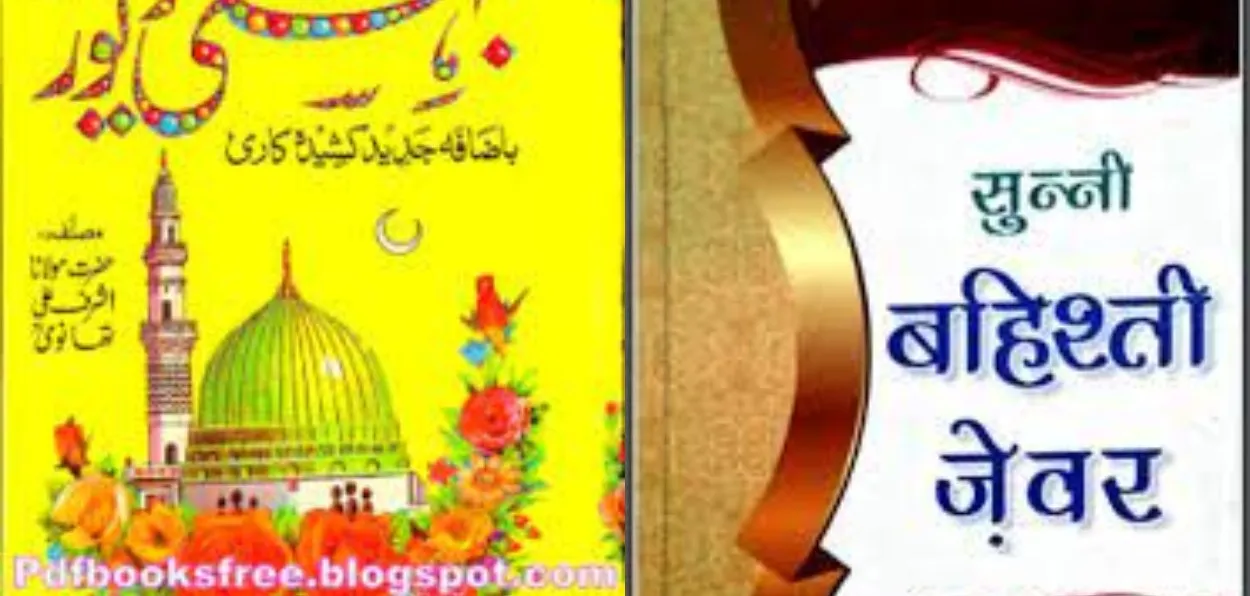
Sayyed Taleef Haider
After the Qur'an and the Hadith, if any book has gained popularity among the Muslims of India in the last century, it is Behishti Zewar. Even today this book can be found on the shelves or atop cupboards in most Muslim households. The book was often part of a women's dowry. In the past, fathers who could not provide much to their daughters for their wedding made sure to gift them Behishti Zewar. No wonder it's considered one of the best-selling books in India after the Quran.
Authored by the Indian scholar Ashraf Ali Thanvi, it addresses women's and men's issues and even delves into areas where their lives are intertwined.
Over the last 50 years, this book has faced significant criticism, too. Some of the objections to this book are from Indian Muslims who find its part contentious. One common criticism is that the book was written for the Deobandi sect of the Muslim community, yet surprisingly, it has gained widespread popularity among all Muslims. Today, Barelvis, Ahl al-Hadith, Shia, and Salafis have raised specific objections to it.
This book is the first of its kind in India that addresses an array of economic, social, national, religious, cultural, personal, therapeutic, medical, sexual, religious, and linguistic issues of Muslims. So far, no other book has challenged it in India. Even if these exist, they are not popular. This is especially true about sexual issues, where explicit descriptions of both men's and women's experiences are presented.
When an individual including a religious scholar assumes multiple roles such as healer, writer, psychologist, dermatologist, mythologist, sexologist, and jurist, the likelihood of errors in their writing increases. The mistakes in this book should be considered in the context of the society of its time, when India was less developed and education for Muslim women was low.
In today's context, the book indeed contains errors. For instance, certain statements by Maulana in this book like the peculiar notion of minimum age for cows and buffaloes about zakat are erroneous. These concepts seem irrelevant to Islam and are indicative of flawed thinking. Similar flaws can be found in the stipulated minimum age for camels and goats. Examples include the prohibition of women shaving their heads or cutting their hair short, despite hadith indicating a curse for such actions.
The claim that biting nails leads to leukoderma is baseless, and the prohibition of allopathic medicine due to alcohol content lacks scholarly consensus. Furthermore, suggesting methods to reduce sexual weakness to preserve modesty is an instance of introducing new practices into religion, which is considered a grave sin.
Equally, labeling any appreciation of idolatrous rituals as sinful demonstrates a lack of understanding. Categorizing listening to music as a serious transgression, deeming being alone with a stranger a major sin, or associating worship with bringing rain, illustrate some of the controversial stances in the book. Certain notions such as the belief that laughing loudly invalidates ablution are also highly outdated.
The instruction not to perform ablution or bathe using water left behind after a woman's ablution or bathing is based on questionable premises. Avoiding facing the moon or sun while defecating or urinating, as well as refraining from doing so naked, is derived from superstition rather than religious doctrine. The book's approach to complex situations is at times simplistic. For instance, it claims that if a husband is absent for an extended period and the wife had a child, according to Sharia law, the child is not illegitimate but rather belongs to the absent husband.
On religious beliefs, the book presents principles from the author's perspective, thereby, labeling those who adhere to different beliefs as sinners. In terms of social and cultural matters, the book lacks thorough research and relies heavily on stereotypical views. Its guidance on issues related to menstruation, purity, and women's participation in sports might have held relevance a century ago, but these have lost importance in society, where Muslim women are actively engaged in education.
While a significant section of Deobandis endeavors to address the criticisms supporting Behishti Zewar, the matter remains unresolved. For example, in response to the issue of conceiving a child in the absence of one’s husband, a Deobandi scholar said that Maulana was right because since the marriage continues even after the birth of the child, it is possible that the two were united by of miracle or a Jinn.
ALSO READ: Chandrayaan-3 landing: Indians across the globe pray for success of the mission
This book is significant in its historical context yet is fraught with limitations and contentious ideas. Beyond the basic religious issues, its value in the modern era is questionable.
